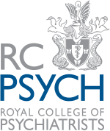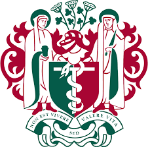Psychiatry
Frequently Asked Questions about Psychiatry
You will be asked about any mental health symptoms you are experiencing, triggers that might have caused these difficulties and the impact this might be having on your life. We would also explore any previous diagnosis / treatment you might have already tried. There will also be general questions about your physical health, medications and lifestyle.
Depression is a common condition that can affect men and women, across all age groups. Depression affects 5% of adults or 280 million people worldwide. Depression can be mild, moderate or severe, and can present as a single or short-term episode. In some people, and without effective treatment, depression can be a long-term / reoccurring issue, and this can have a negative impact on a person’s confidence, self-esteem, thought process, sleep, studies, work, relationships, friendships and their overall quality of life. In severe cases, depression can lead to suicide, and so it is important to seek professional support.
Further detailed information on depression can be found here: https://www.rcpsych.ac.uk/mental-health/mental-health-faqs
Anxiety is an unpleasant feeling people can experience when in a stressful situation. Most people experience periods of anxiety during difficult periods in their lives. There are many types of anxiety disorders including generalised anxiety disorder (GAD), panic disorder, social anxiety, agoraphobia and specific phobias (excessive and persistent fear of a situation or object).
The prevalence of anxiety varies depending on the specific condition. For example, generalised anxiety disorder is the most common anxiety condition, and it affects up to 5% of the UK population. The World Health Organisation have estimated that over 300 million people worldwide are living with an anxiety disorder.
Further detailed information on generalised anxiety disorder can be found here: https://www.rcpsych.ac.uk/mental-health/problems-disorders/anxiety-and-generalised-anxiety-disorder-(gad)
Bipolar disorder was previously known as “manic depression”. People with bipolar disorder experience alternating periods of depression (feeling low) and mania or hypomania (feeling high).
Roughly 1% of people are affective by bipolar disorder, which is roughly 1 in 50 people. Bipolar disorder is recognised as a serious condition.
Further detailed information on bipolar disorder can be found here: https://www.rcpsych.ac.uk/mental-health/problems-disorders/bipolar-disorder
Obsessive-compulsive disorder (OCD) is a condition which causes people to experience obsessive thoughts, and these can sometimes be accompanied by compulsive behaviours. It is estimated to affect between 1% and 3% of the population, which is over 1 million people in the UK. OCD can cause distress and so it is important to seek professional support.
Further detailed information on obsessive-compulsive disorder can be found here: https://www.rcpsych.ac.uk/mental-health/problems-disorders/obsessive-compulsive-disorder
Post-traumatic stress disorder (PTSD) is a condition that can arise after experiencing a traumatic, exceptionally threatening event, situation or a serious injury. Not everyone who experiences trauma will develop post-traumatic stress disorder. Estimates suggest that roughly 4 in 100 people may have PTSD (over 2 million people), although estimates vary. PTSD is a serious condition which can have a serious impact on a person’s quality of life, so it is important to seek professional treatment.
Further detailed information on post-traumatic stress disorder can be found here: https://www.rcpsych.ac.uk/mental-health/problems-disorders/post-traumatic-stress-disorder





